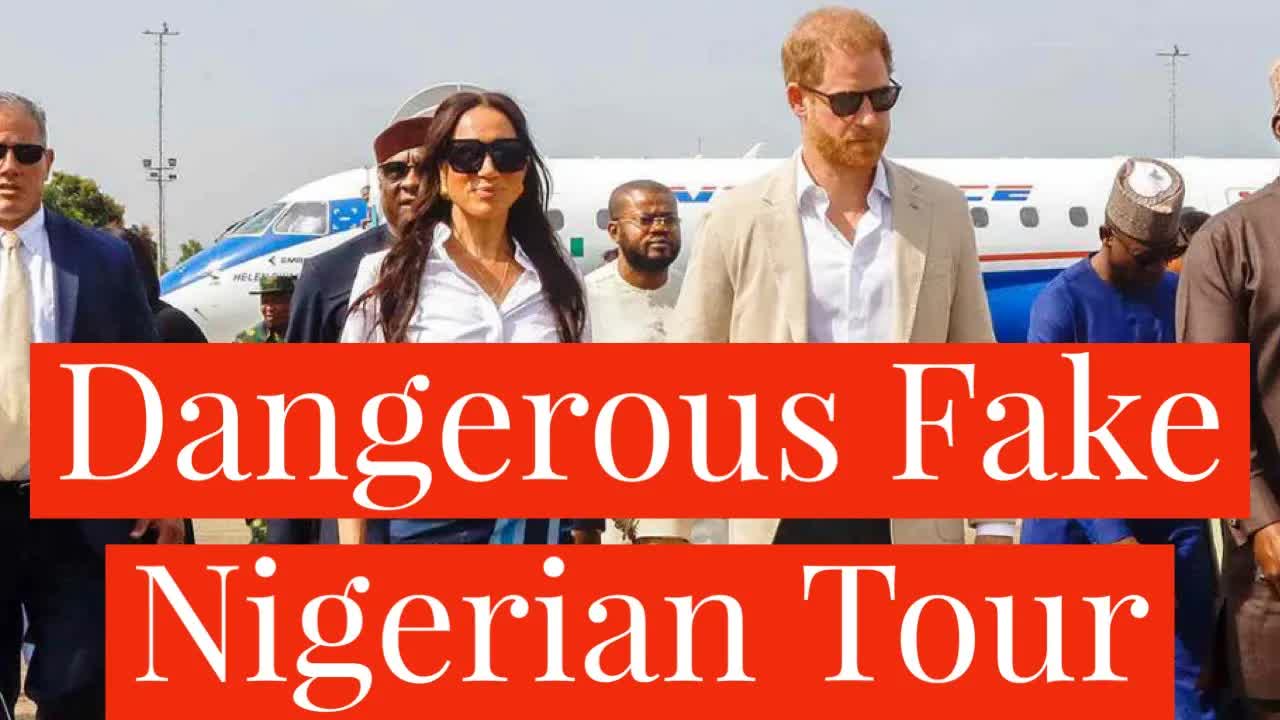Must Read
Harry and Meghan’s Nigerian Tour: A Royal Faux Pas or a New Era of Diplomacy?
Prince Harry and Meghan Markle's recent visit to Nigeria has stirred quite the conversation among royal enthusiasts.
Many observers noted that the couple appeared to be playing the part of royals on what some have dubbed a “quasi-royal tour.”
The term “cosplay royals” has been thrown around, highlighting how their actions seem to mimic the traditional duties of the monarchy, albeit with a peculiar twist.
While royal tours are generally designed to foster diplomatic relations between nations, Harry and Meghan's excursion often veered into the realm of the bizarre.
The couple seemed eager to embrace a new familial connection in Nigeria while simultaneously distancing themselves from their own relatives back in the UK.
This dichotomy left many questioning the true intent behind their visit.
Adding to the scrutiny was Meghan's extravagant wardrobe, reportedly costing upwards of $130,000.
This raised eyebrows not only for its price tag but also for the mixed messages surrounding the purpose of their trip.
After stepping away from royal duties, why were they trying so hard to emulate the royal lifestyle they had ostensibly rejected?
Despite their departure from the royal family, Harry and Meghan appear determined to carve out their own version of royal life.
However, their efforts may be doing more harm than good to the monarchy's reputation.
As they continue to promote their personal brand, critics argue that they have become mere representatives of their business interests rather than the royal figures they once were.
The British government has made it clear that the couple's visit did not have any official ties to the UK, emphasizing that it should not be interpreted as a diplomatic mission.
Yet, the global audience, particularly in the United States, seems unable to distinguish between the couple's activities and those of actual royals, leading to further confusion about their role.
This misunderstanding could potentially jeopardize relations between the UK and Nigeria.
While the royals typically use state visits to build bridges and enhance diplomatic ties, Harry and Meghan's visit lacked any tangible benefits for Nigeria.
Critics argue that the couple had little to offer the country, raising questions about the appropriateness of their visit.
An anecdote shared by a local Nigerian highlighted the futility of the visit, pointing out that Harry's presence would not contribute to the country's economic struggles.
With Nigerians facing significant hardships, the lavish expenditure on hosting the couple appeared to be a waste of resources, leaving many feeling disillusioned.
The optics of their visit were further complicated by Meghan's choice of attire, which many deemed inappropriate for the cultural context of Nigeria.
Her fashion choices seemed to prioritize glamor over the respectful engagement expected during diplomatic visits, further muddying the waters of their intended message.
Moreover, their narrative of embracing Nigerian heritage felt disingenuous to some.
While Meghan has claimed a connection to the region, the absence of her mother during the visit raised eyebrows.
If the trip was genuinely about celebrating her roots, why not include her family in the experience?
As Harry and Meghan attempt to navigate their identity post-royalty, they seem to be creating a narrative that prioritizes newfound connections over established family ties.
Their comments about Nigerians being “in-laws” sparked criticism, as many felt it undermined the significance of genuine familial relationships.
In the end, the couple's efforts to redefine their roles in the public eye may be backfiring.
By trying to bridge the gap between their royal past and their current pursuits, they risk alienating both their former family and the very audience they wish to connect with.
The question remains: Can Harry and Meghan truly find a place in the world of diplomacy without compromising their integrity and the legacy of the monarchy?




















